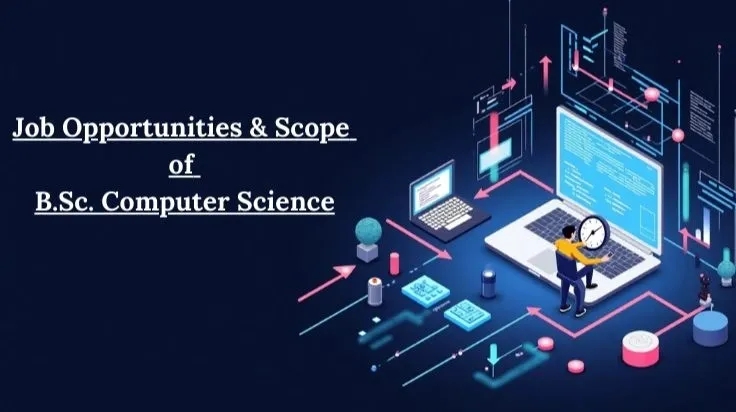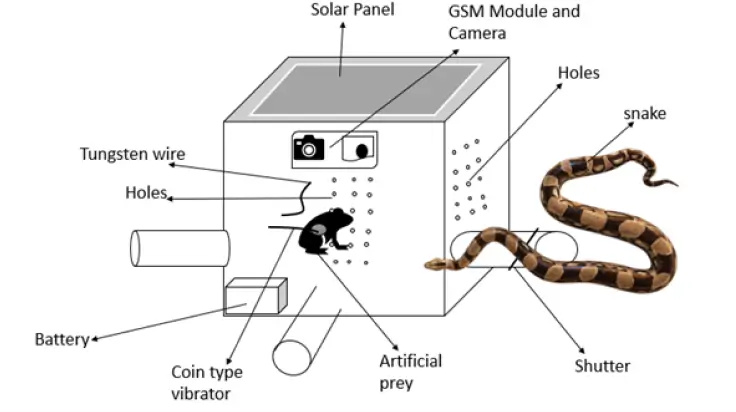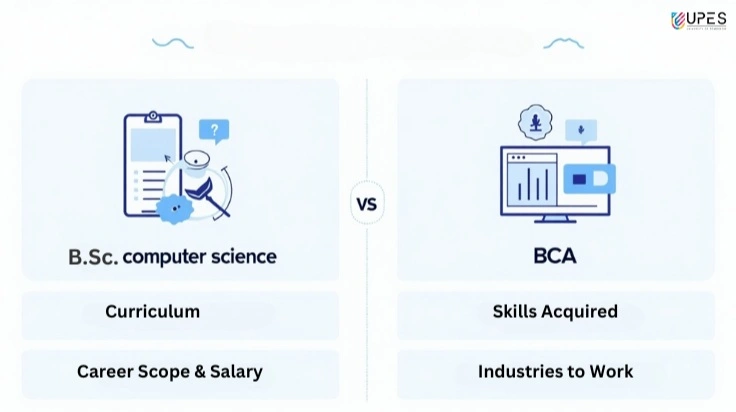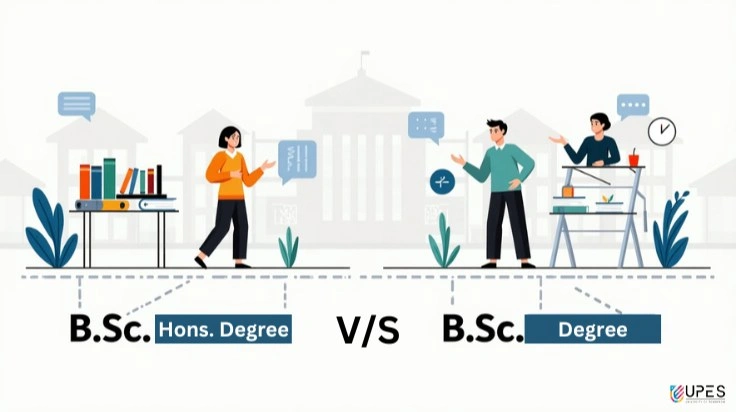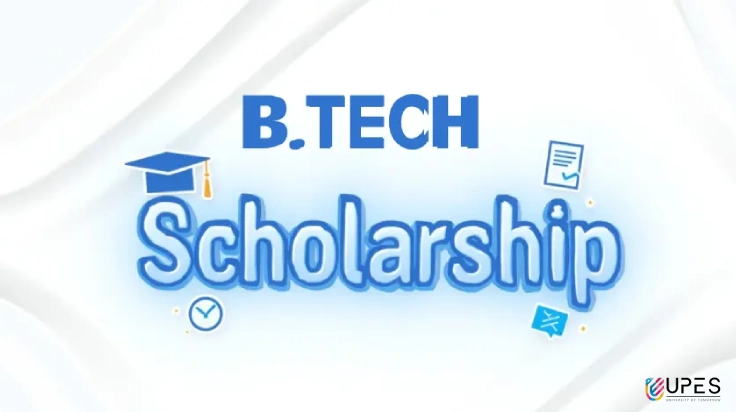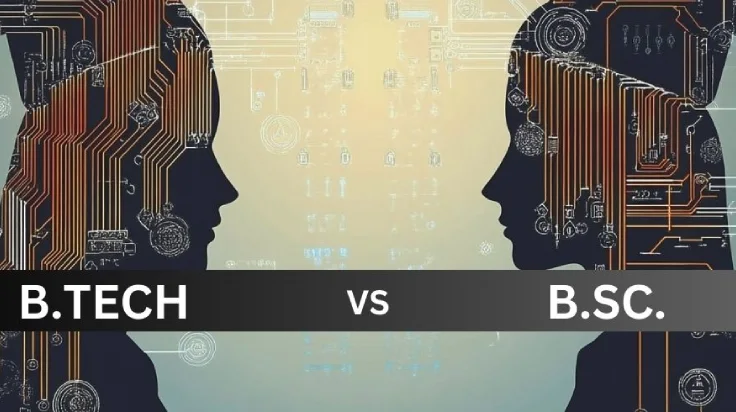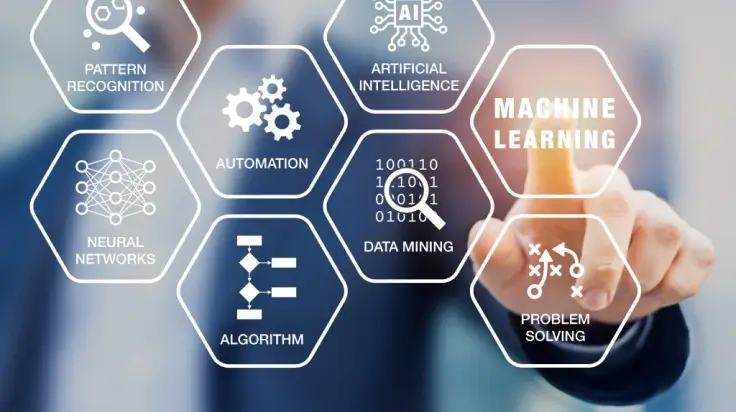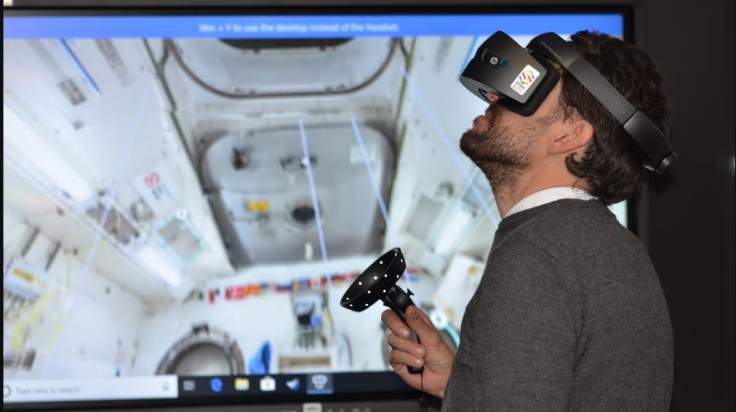CSE Specialization: Which Branch to Choose for The Future?
- UPES Editorial Team
- Published 04/03/2025

Table of Contents:
B.Tech. CSE happens to be one of the most sought-after Engineering branches. Only the high rankers succeed in getting this branch. Post pursuing BTech CSE, abundant and lucrative jobs and career opportunities line up. Within BTech CSE there now lies plethora of specializations one can pursue education from. However, we know choices can be confounding. Very often students end up taking a specialization they are not really interested in or not where their actual skills lie. To avoid situations like these, it’s imperative to be aware of the choices, key factors to consider before choosing, and best CSE colleges to study from.
Become future-ready with our Computer Science programs
Know MoreWe have prepared a blog that answers all the above questions and brings in good recommendations on the cse sub-branches in btech to choose from. By the end of this blog, you’ll be equipped in making one of the most important decisions of your life.
Top Specialization in CSE:
Choosing the right specialization in Computer Science Engineering (CSE) is crucial for building a rewarding career. With rapid advancements in technology, each specialization offers unique opportunities and challenges. Let’s explore the most in-demand CSE sub-branches in BTech, covering salaries, job roles, companies, and skills.
1. Artificial Intelligence (AI)
Artificial Intelligence and machine learning is transforming industries with innovations like self-driving cars, personalized recommendations, and intelligent chatbots. This field is ideal for problem solvers passionate about automating tasks and analyzing complex patterns and understanding the role of machine learning in computer science.
- Skills Learned: Machine learning algorithms, neural networks, natural language processing (NLP), computer vision, AI ethics.
- Job Prospects: AI Engineer, Machine Learning Specialist, Robotics Scientist, AI Researcher.
- Top Companies: Google, IBM, Microsoft, Amazon, OpenAI.
- Average Salary: ₹8-15 LPA (entry-level); ₹25-50 LPA (experienced professionals).
AI is not just the future; it’s the present, with immense growth potential and applications across industries like healthcare, automotive, and entertainment.
2. Full Stack Development
Full Stack Development is perfect for those who enjoy creating seamless user experiences and robust backend systems. This field focuses on developing end-to-end applications.
- Skills Learned: Front-end (HTML, CSS, JavaScript), back-end (Node.js, Python, Ruby), databases (MySQL, MongoDB), APIs, version control (Git).
- Job Prospects: Full Stack Developer, Web Developer, Application Developer.
- Top Companies: Meta, Infosys, Cognizant, TCS, startups.
- Average Salary: ₹5-12 LPA (entry-level); ₹18-25 LPA (senior roles).
With businesses transitioning to digital platforms, the demand for Full Stack Developers is skyrocketing. This specialization offers versatility and global career opportunities.
3. Data Science
If making sense of vast amounts of data excites you, then Btech Data Science is the perfect specialization. It is the backbone of decision-making for companies worldwide.
- Skills Learned: Python, R, statistical modeling, data visualization, machine learning, big data tools (Hadoop, Spark).
- Job Prospects: Data Scientist, Data Analyst, Business Intelligence Analyst, Machine Learning Engineer.
- Top Companies: Deloitte, Amazon, Netflix, Capgemini, Accenture.
- Average Salary: ₹8-14 LPA (entry-level); ₹20-30 LPA (experienced roles).
With the explosion of data in the digital age, the role of Data Scientists has become indispensable across industries like finance, healthcare, and e-commerce.
4. Cloud Computing
Cloud Computing is the backbone of digital transformation, enabling scalable and efficient storage solutions. This specialization focuses on building and managing cloud-based systems.
- Skills Learned: Cloud architecture, virtualization, AWS, Azure, Google Cloud, DevOps, containerization (Docker, Kubernetes).
- Job Prospects: Cloud Engineer, Cloud Solutions Architect, Cloud Security Specialist.
- Top Companies: Amazon Web Services (AWS), Microsoft Azure, Google Cloud, Oracle, VMware.
- Average Salary: ₹6-12 LPA (entry-level); ₹18-30 LPA (senior roles).
Organizations are increasingly adopting cloud solutions, making Cloud Computing professionals critical for ensuring secure and scalable infrastructure.
5. Core Computer Science
Core Computer Science is the foundation of all CSE specializations. It emphasizes on learning fundamental concepts, programming languages that form the bedrock of technological advancements.
- Skills Learned: Data structures, algorithms, programming (C, C++, Java, Python), operating systems, databases.
- Job Prospects: Software Engineer, Systems Engineer, Research Scientist.
- Top Companies: Microsoft, Google, Oracle, Adobe, IBM.
- Average Salary: ₹6-10 LPA (entry-level); ₹15-25 LPA (experienced roles).
This specialization is perfect for those seeking a strong technical grounding with programming languages and a wide range of career opportunities in software development and research.
6. Cybersecurity & Data Forensics
Cybersecurity is crucial for protecting sensitive data from breaches. Specializing in Cybersecurity & Data Forensics equips you to handle threats in an increasingly interconnected world.
- Skills Learned: Ethical hacking, threat analysis, cryptography, digital forensics, network security.
- Job Prospects: Cybersecurity Analyst, Penetration Tester, Security Architect, Forensics Investigator.
- Top Companies: Palo Alto Networks, Cisco, Wipro, IBM, CrowdStrike.
- Average Salary: ₹7-12 LPA (entry-level); ₹20-30 LPA (senior positions).
As cyber threats grow, so does the demand for skilled professionals who can secure systems and investigate breaches effectively.
7. DevOps
DevOps bridges the gap between development and operations, emphasizing automation and collaboration to streamline the software development lifecycle.
- Skills Learned: Continuous integration/deployment (CI/CD), automation tools (Jenkins, Ansible), scripting, cloud platforms, monitoring.
- Job Prospects: DevOps Engineer, Site Reliability Engineer, Automation Engineer.
- Top Companies: Google, Microsoft, Red Hat, Atlassian, Amazon.
- Average Salary: ₹7-15 LPA (entry-level); ₹18-25 LPA (senior roles).
With its focus on efficiency and speed, DevOps is integral to agile methodologies and modern software delivery.
8. Graphics and Gaming
For creative minds passionate about storytelling through visuals, B.Tech in Graphics and Gaming is an exciting specialization. It merges art and technology to create immersive experiences.
- Skills Learned: Game engines (Unity, Unreal), 3D modeling, animation, rendering, augmented reality (AR), virtual reality (VR).
- Job Prospects: Game Developer, Graphics Programmer, AR/VR Specialist.
- Top Companies: EA Sports, Ubisoft, Rockstar Games, Epic Games.
- Average Salary: ₹6-12 LPA (entry-level); ₹15-25 LPA (experienced professionals).
The gaming industry’s exponential growth ensures this specialization remains highly lucrative and engaging.
9. Internet of Things (IoT)
IoT is at the heart of smart technologies, connecting devices to create intelligent systems. This specialization is ideal for those fascinated by automation and connectivity.
- Skills Learned: Embedded systems, IoT protocols, sensor technology, automation, edge computing.
- Job Prospects: IoT Developer, Embedded Systems Engineer, IoT Architect.
- Top Companies: Bosch, Honeywell, Siemens, Intel, Cisco.
- Average Salary: ₹6-10 LPA (entry-level); ₹15-20 LPA (senior roles).
IoT’s applications span industries like healthcare, manufacturing, and smart cities, making it a field of endless possibilities.
10. Big Data
Big Data deals with extracting insights from vast datasets. This specialization is crucial for data-driven decision-making across industries.
- Skills Learned: Data processing tools (Hadoop, Spark), SQL/NoSQL databases, data mining, analytics tools (Tableau, Power BI).
- Job Prospects: Big Data Engineer, Data Architect, Data Analyst.
- Top Companies: Accenture, TCS, Infosys, Deloitte, Capgemini.
- Average Salary: ₹8-14 LPA (entry-level); ₹20-30 LPA (experienced roles).
As businesses strive to harness the power of data, Big Data professionals are in high demand globally.
Choosing a specialization from the many CSE branches in engineering depends on your interests and career goals. Whether you’re drawn to problem-solving in AI, securing systems with Cybersecurity, or designing immersive games, each field offers unique opportunities.
Key Factors to Consider When Choosing a CSE Specialization
Selecting the right CSE branch in engineering is a crucial decision that can shape your career. Here are some key factors to consider helping you make the right choice:
1. Interest and Passion
Your passion should guide your choice. If you enjoy working with data, consider Data Science or Big Data. If building secure systems excites you, Cybersecurity might be the best fit. Similarly, creative thinkers can explore Graphics and Gaming.
2. Career Goals
Think about your long-term aspirations. If you want to innovate in AI-driven solutions, choose Artificial Intelligence. If you aim for leadership roles in software development, Full Stack Development or Core Computer Science can set a strong foundation.
3. Industry Demand and Job Prospects
Research current and future job market trends. Fields like Cloud Computing, IoT, and AI are growing rapidly due to increased digital transformation and automation. Specializing in these areas can offer high job security and lucrative opportunities.
4. Salary Potential
Specializations like AI, Cybersecurity, and Cloud Computing often offer higher starting salaries compared to others. Align your choice with your financial goals, but ensure it aligns with your interests as well.
5. Skill Set Alignment
Evaluate your existing skills. If you have strong programming skills, consider Core Computer Science or DevOps. For analytical thinkers, Data Science and Big Data are excellent options. Creative skills are essential for Graphics and Gaming.
6. Future Trends and Innovations
Fields like AI, Blockchain, and IoT are not just popular today but are predicted to dominate the future. Opt for specializations that align with evolving technologies to future-proof your career.
7. Work-Life Balance
Certain fields, like Cybersecurity, might demand high levels of vigilance and on-call responsibilities, while others, like Cloud Computing, may offer more flexible working environments. Consider how your specialization impacts your work-life balance.
8. Academic and Industry Support
Choose a university or institution with strong industry collaborations, modern infrastructure, and a curriculum that matches industry requirements. UPES School of Computer Science offers diverse specializations tailored to emerging tech trends.
9. Global Opportunities
If you aim to work with multinational companies or in global markets, specializations like AI, Data Science, and Cloud Computing are in high demand worldwide. These fields open doors to international career opportunities.
10. Internship and Placement Records
Investigate the internship and placement statistics of your preferred specialization. High placement rates in companies like Google, Microsoft, and Amazon often indicate a robust and industry-aligned program.
By evaluating these factors, you can confidently choose a specialization that aligns with your interests, strengths, and career ambitions. Remember, the right CS branch in engineering not only ensures a rewarding career but also keeps you motivated and passionate about your work!
Why Choose UPES for CSE Specializations?
In a world driven by technology, having a strong foundation in Computer Science Engineering (CSE) is essential for a thriving career. UPES emerges as a leader in providing cutting-edge education, offering students the skills and opportunities they need to excel in various CSE branches in engineering.
Here’s why UPES is the perfect choice:
- Practical Curriculum: Tailored to meet the evolving demands of the tech industry.
- Expert Faculty: Learn from industry veterans and research-focused educators.
- Placement Opportunities: Partnerships with global giants like Google, Microsoft, and Amazon.
- Modern Infrastructure: State-of-the-art labs and collaboration spaces.
- Focus on Emerging Tech: Programs designed to build expertise in CSE sub-branches like AI, Cloud, and IoT.
UPES goes beyond just academics, nurturing innovation, and entrepreneurial skills in its students, making them industry-ready professionals.
Which Specialization is Best in MBA After Computer Science Engineering?
For students with a background in Computer Science Engineering (CSE), pursuing an MBA allows you to combine technical expertise with management skills. Here are the top MBA specializations to consider:
1. MBA in Information Technology (IT) Management: Leverage your tech background to lead IT projects and develop strategic tech solutions.
- Job Roles: IT Manager, Technology Consultant, Chief Information Officer (CIO).
2. MBA in Business Analytics: Utilize data-driven insights to guide business strategies, building on your knowledge of data science and analytics.
- Job Roles: Data Analyst, Business Analyst, Analytics Manager.
3. MBA in Product Management: Perfect for those interested in managing tech products from ideation to market launch.
- Job Roles: Product Manager, Program Manager, Innovation Strategist.
4. MBA in Finance: Combine your logical and analytical skills from CSE with financial expertise for roles in fintech and investment.
- Job Roles: Investment Banker, Financial Analyst, Risk Manager.
5. MBA in Marketing: Learn to market tech solutions effectively, making it an excellent choice for tech-savvy professionals.
- Job Roles: Digital Marketing Manager, Brand Manager, Marketing Strategist.
Choosing the right MBA specialization after CSE depends on your career aspirations. If you wish to stay close to technology, IT Management or Business Analytics is a natural choice. For those aiming to transition into leadership or finance, Product Management or MBA in Finance offers excellent opportunities.
Future Scope of CSE Specializations
The scope of CSE all branches continue to expand globally, driven by rapid digital transformation. From artificial intelligence revolutionizing industries to cybersecurity safeguarding critical systems, the opportunities in CS branches in engineering are boundless.
Whether you're drawn to AI/ML, Cloud Computing, or Cybersecurity, your chosen specialization can pave the way for a fulfilling and high-impact career. By enrolling in a CSE branch in engineering at UPES, you position yourself as a future-ready tech professional equipped to thrive in this competitive landscape.

Our counsellors are just a click away.
Conclusion
Choosing the right CSC in engineering is the first step toward achieving your career dreams. UPES empowers you with the skills, resources, and guidance to explore vast opportunities across diverse CSE branches in engineering.
Don’t wait to secure your future in technology. Visit UPES School of Computer Science today to learn more about their specialized programs and take the first step toward a successful career in tech!
UPES Editorial Team
Written by the UPES Editorial Team
UPES Admission Enquiry
Subscribe to UPES Blogs
Join our community for exclusive stories, insights, and updates
By clicking the "Subscribe" button, I agree and accept the privacy policy of UPES.
















